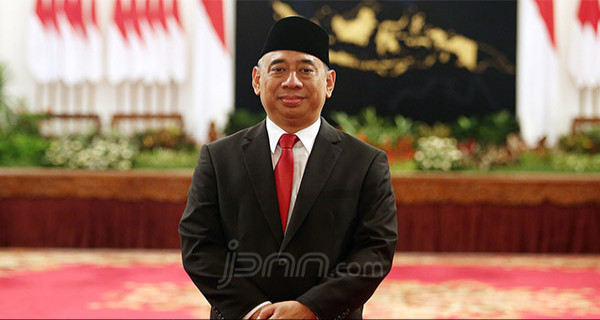Vietnam News Agency corresponsdent based in Jakarta, Indonesia spoke to Indonesian Ambassador to ASEAN Ade Padmo Sarwono about the outcomes of the 37th ASEAN Summit and Related Meetings.
How do you evaluate the results of the 37th ASEAN Summit and related meetings? What are the messages and commitments conveyed by Indonesia at these meetings?
The results of the 37th ASEAN Summit and its related meetings are very essential and timely, considering that it was held in the midst of the pandemic Covid-19. The pandemic has significantly affected people’s lives, health and well-being, and exerts severe pressure on the world and regional economy, bringing about serious challenges to societies and economies around the world, including to the ASEAN member states.
ASEAN should start to implement the ASEAN Comprehensive Recovery Framework (ACRF) which contained of various immediate and integrated efforts to mitigate the impact of the pandemic on health and safety, while at the same time conducting economic recovery and maintaining supply chains and connectivity in the region.
Within the framework, Indonesia has proposed an ASEAN Declaration on ASEAN Travel Corridor Arrangement Framework to facilitate essential business travels among ASEAN member states, while prioritising public health safety, particularly in controlling the transmission of the Covid-19, without precluding the application of the framework to other categories of travel in the future. The Declaration has been adopted by ASEAN leaders at 37th Summit on November 13. We do hope the Framework could be finalised in the first of next year so it can revive our economic interaction and then ASEAN citizens can travel again.
Maintaining ASEAN centrality, pushing joint efforts to fight the COVID-19 pandemic, promoting regional economic recovery, concluding the RCEP... What are the most outstanding performances achieved by ASEAN in this very difficult year?
The most outstanding achievement in the year 2020 is the signing of RCEP. The RCEP was originally proposed by Indonesia during ASEAN chairmanship in 2011. Indonesia was the Chairman of the Trade Negotiating Committee (TNC), and after an eight-years long of relentless negotiations, it was finally concluded on November 11 and signed on November 15. The RCEP is the biggest trade agreement in the world with GDP 30.2 per cent of global GDP.
The fact that it is the most extensive FTA to date, covers a great deal of essential trading and business issues (i.e. goods and services, investment, economic and technical cooperation, intellectual property rights, disputes settlement, e-commerce, and MSMEs), and that the negotiation was successfully concluded after a grueling eight year process and the pact was finally signed in the most challenging time made RCEP stands out even more as the most rewarding achievement.
What does the signing of RCEP mean for ASEAN in the context of the global economic downturn caused by the COVID-19 pandemic? What does Indonesia expect from this agreement?
RCEP should not be viewed simply as a trade agreement, but as a comprehensive economic cooperation agreement that contribute to regional political security and stability, and reinforces ASEAN centrality in Southeast Asia and the Indo-Pacific. RCEP will be the world’s largest trade bloc which representing 29.6 per cent of the world’s population and encompassing roughly 30.2 percent of global GDP.
RCEP is the latest example of ASEAN’s long-term, staunch commitment to open regionalism and regional integration. Since the 1980s, and even more so following the 1997 Asian Financial Crisis, ASEAN’s response to both regional and global political and economic turmoil has been to double down and strengthen its integration efforts.
With this agreement, Indonesia hopes it can create a favourable environment for economic and trade relations in the Indo-Pacific region as well as for contributing to economic recovery efforts.
How has Việt Nam performed its role as ASEAN Chair, especially in the challenging context of the COVID-19 pandemic and amid growing tension in the region?
Indonesia is of the view that Việt Nam has done its utmost efforts to execute the role as ASEAN Chair amid the unprecedented situation. Of course, this pandemic has indeed brought new challenges that have to be overcome.
What would be major challenges as well as opportunities for ASEAN in the coming years? Do you think that our region needs to continue to promote the spirit of “ASEAN cohesive and responsive”?
Yes, definitely.
It is important for ASEAN to maintain its cohesiveness and unity in the midst of global rivalry. We need to maintain ASEAN centrality in all ASEAN led-mechanism, and must be firm in our principles including those outlined in the ASEAN Outlook on Indo-Pacific.
We must be able to response in a unison to regional and global challenges. Together we are stronger, and I believe with the spirit of togetherness, cohesiveness, ASEAN can response and overcome any kind of challenge lie ahead of it in the future. VNS
Xem thêm: lmth.tnemeveihca-gnidrawer-tsom-eht-sa-erom-neve-tuo-sdnats-pecr/137018/swal-scitilop/nv.swenmanteiv
